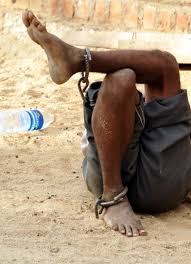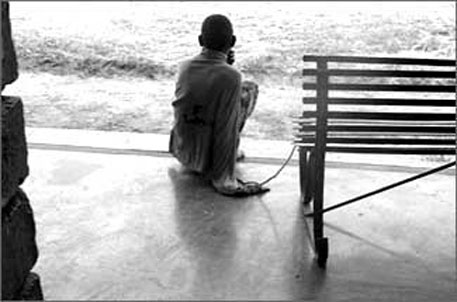
(9-21-16) This is the second in a three part series that I am writing about my recent trip to India to speak about mental health reform.
Mental health services in India are scarce and living conditions for many of those who are ill often border on being barbaric. This is especially true for women and children who find themselves homeless and abandoned on the streets or confined in facilities where restraints are commonly used and physical and sexual abuses are all too common.
During my short visit to Chennai for the three day summit, I wasn’t able to do much except visit a handful of local facilities and listen to personal stories that I later augmented with articles and news reports. Everyone readily admitted to me that India faces incredible challenges. Much of the problem is because of scale. India has a population of 1.3 billion, has more than two thousand different ethnic groups, and has two nationally recognized languages. Some 58% of its residents earn less than $3 per day, putting them under worldwide poverty guidelines.
As is true in other nations, serious mental illnesses – such as schizophrenia and bipolar disorder – are thought to be prevalent in seven percent of the population. In India that translates to multi-millions, yet there are only an estimated 40,000 mental health beds nationally in government and private hospitals. The widespread poverty in India causes high numbers of other mental disorders such as anxiety and depression. In the past decade, suicides have jumped 22 percent. It’s estimated that only one in four Indians have access to any sort of psychiatric care, and that is strictly among the middle and wealthy class. In India, insurance companies do not pay for psychiatric care.
For the poor, there are little or no services and stories of abuse and neglect routinely surface. In 2001, a fire at a mental facility killed 26 persons who were burned alive chained to their beds. More recently, a children’s hospital came under public criticism when it was revealed that guards were knocking out the youngsters’ teeth so that they could better perform oral sex on the staff. Between 2010 and 2013, as many as 84 patients died in a single state-run mental hospital in one Indian state. All were thought to have curable illnesses but they died because of abuse, communicable diseases contracted in the mental hospital, poor sanitation, malnutrition, and lack of treatment.







